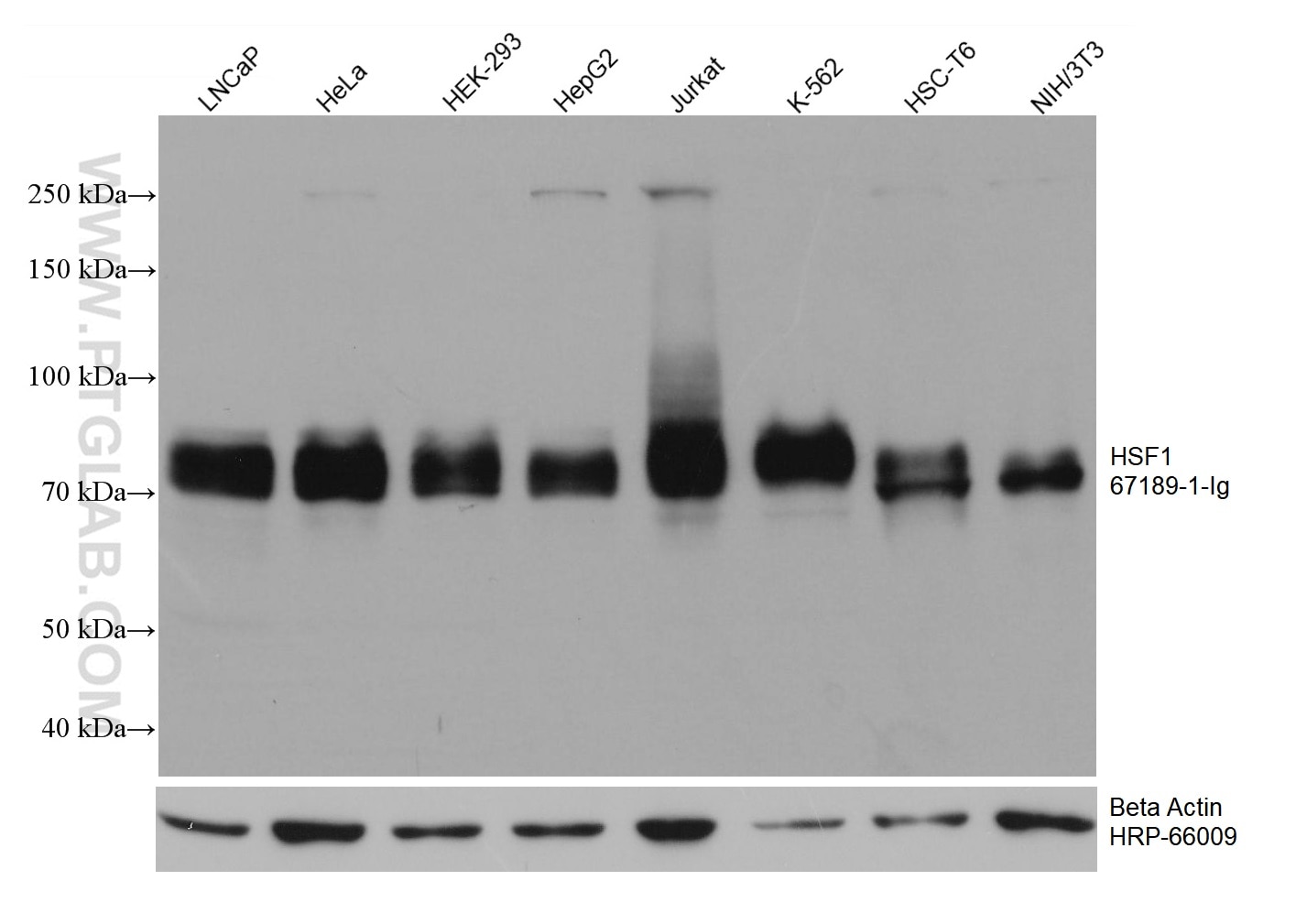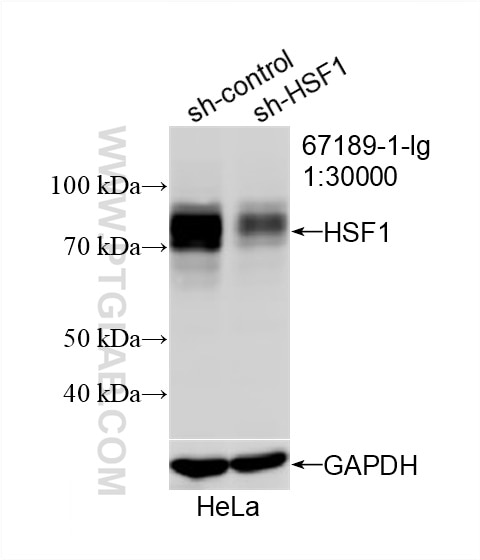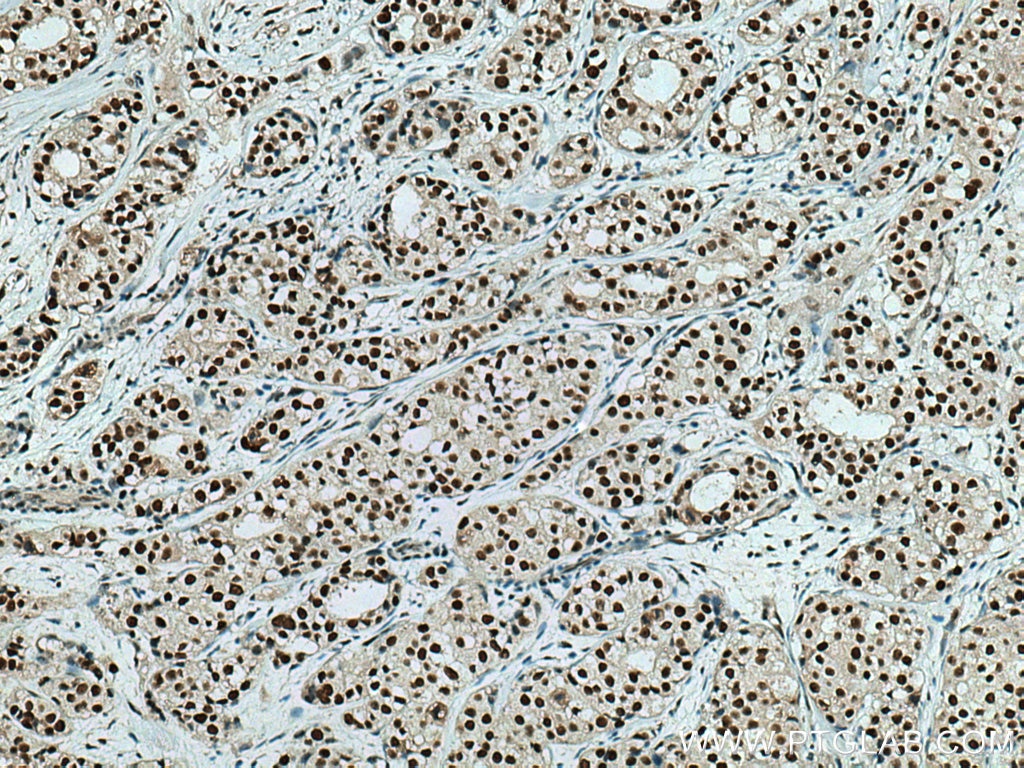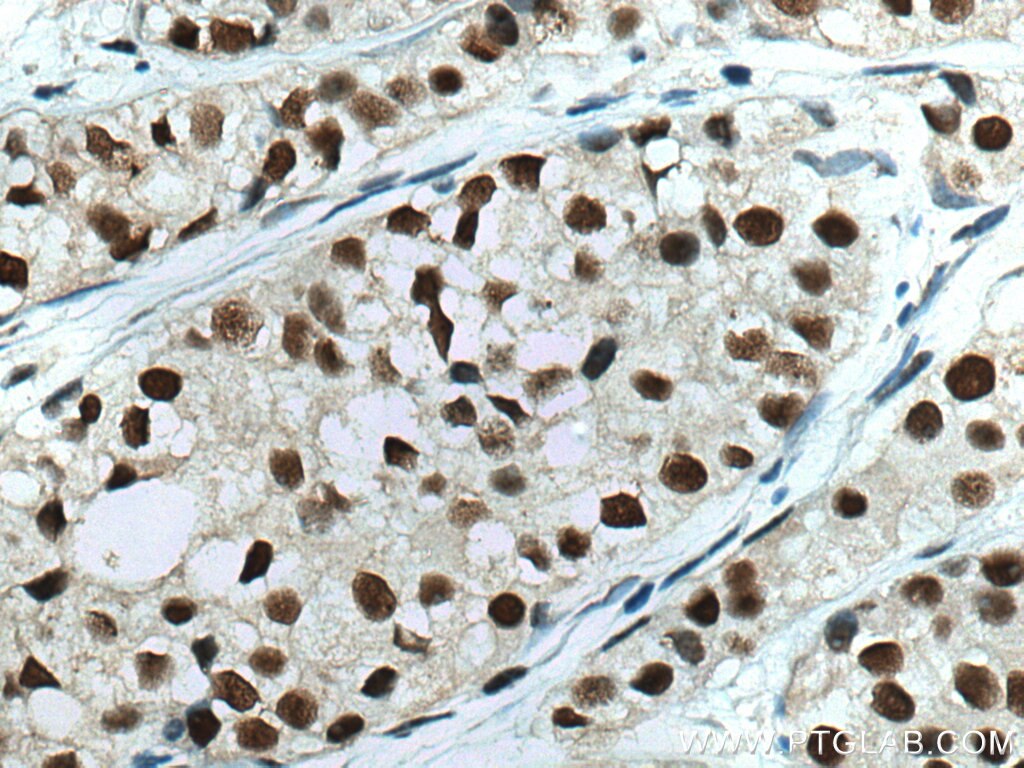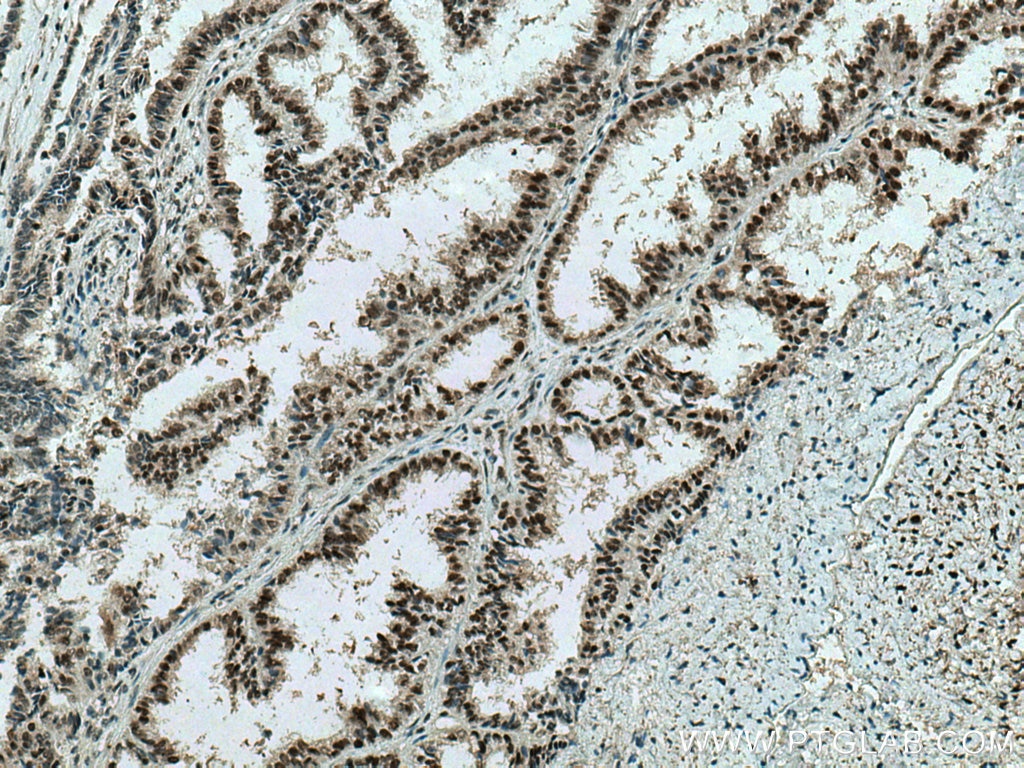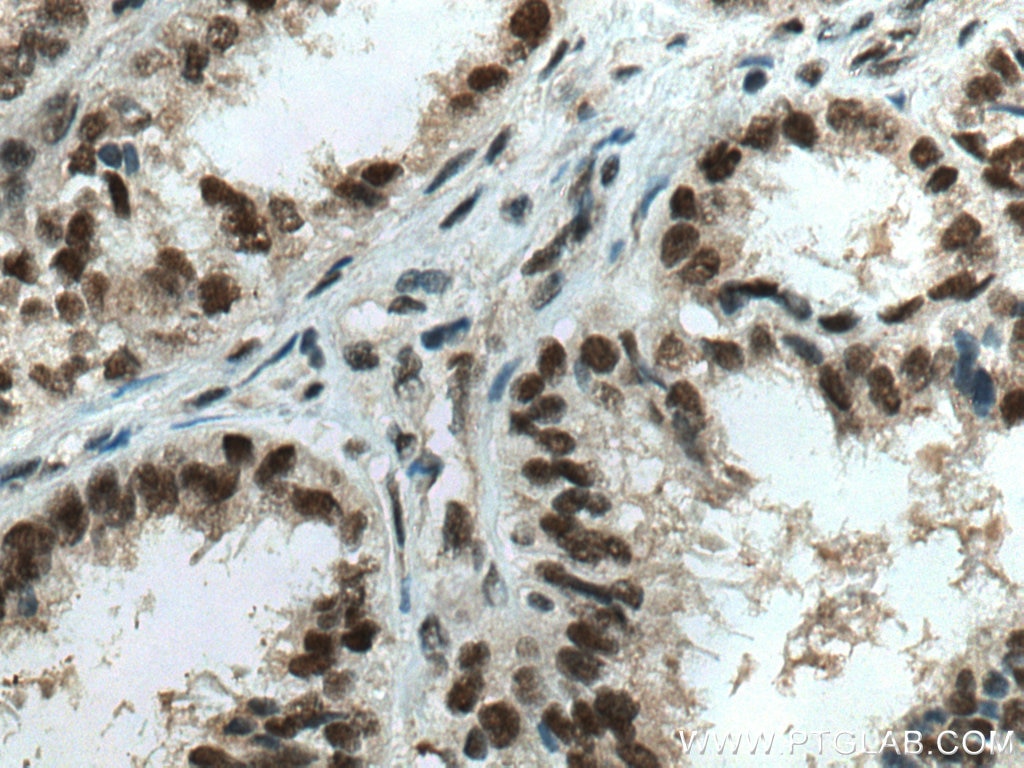- Phare
- Validé par KD/KO
Anticorps Monoclonal anti-HSF1
HSF1 Monoclonal Antibody for IHC, WB, ELISA
Hôte / Isotype
Mouse / IgG1
Réactivité testée
Humain, rat, souris
Applications
WB, IHC, IF, ELISA
Conjugaison
Non conjugué
CloneNo.
1F10A5
N° de cat : 67189-1-Ig
Synonymes
Galerie de données de validation
Applications testées
| Résultats positifs en WB | cellules LNCaP, cellules HEK-293, cellules HeLa, cellules HepG2, cellules HSC-T6, cellules Jurkat, cellules K-562, cellules NIH/3T3 |
| Résultats positifs en IHC | tissu de cancer du sein humain, tissu de tumeur ovarienne humain il est suggéré de démasquer l'antigène avec un tampon de TE buffer pH 9.0; (*) À défaut, 'le démasquage de l'antigène peut être 'effectué avec un tampon citrate pH 6,0. |
Dilution recommandée
| Application | Dilution |
|---|---|
| Western Blot (WB) | WB : 1:20000-1:100000 |
| Immunohistochimie (IHC) | IHC : 1:1000-1:4000 |
| It is recommended that this reagent should be titrated in each testing system to obtain optimal results. | |
| Sample-dependent, check data in validation data gallery | |
Applications publiées
| IHC | See 1 publications below |
| IF | See 1 publications below |
Informations sur le produit
67189-1-Ig cible HSF1 dans les applications de WB, IHC, IF, ELISA et montre une réactivité avec des échantillons Humain, rat, souris
| Réactivité | Humain, rat, souris |
| Réactivité citée | Humain |
| Hôte / Isotype | Mouse / IgG1 |
| Clonalité | Monoclonal |
| Type | Anticorps |
| Immunogène | HSF1 Protéine recombinante Ag29061 |
| Nom complet | heat shock transcription factor 1 |
| Masse moléculaire calculée | 529 aa, 57 kDa |
| Poids moléculaire observé | 68-80 kDa |
| Numéro d’acquisition GenBank | BC014638 |
| Symbole du gène | HSF1 |
| Identification du gène (NCBI) | 3297 |
| Conjugaison | Non conjugué |
| Forme | Liquide |
| Méthode de purification | Purification par protéine G |
| Tampon de stockage | PBS avec azoture de sodium à 0,02 % et glycérol à 50 % pH 7,3 |
| Conditions de stockage | Stocker à -20°C. Stable pendant un an après l'expédition. L'aliquotage n'est pas nécessaire pour le stockage à -20oC Les 20ul contiennent 0,1% de BSA. |
Informations générales
HSF1 belongs to heat-shock transcription factors that activate heat-shock response genes under conditions of heat or other stresses. Also, HSF1 has been linked with oogenesis, spermatogenesis, and placental development. It can activate AKT and inactivate JNK and CASP3 to protect cardiomyocytes from death. And it has a role in the regulation of life span and establishes a role for SIRT1 in protein homeostasis and heat-shock response. The calculated molecular weight of HSF1 is 57 kDa, but HSF1 migrates at approximately 80 kDa which likely represents different phosphorylation states (PMID: 18434628).
Protocole
| Product Specific Protocols | |
|---|---|
| WB protocol for HSF1 antibody 67189-1-Ig | Download protocol |
| IHC protocol for HSF1 antibody 67189-1-Ig | Download protocol |
| Standard Protocols | |
|---|---|
| Click here to view our Standard Protocols |
Publications
| Species | Application | Title |
|---|---|---|
Pancreas Heat Shock Factor 1 in Relation to Tumor Angiogenesis and Disease Progression in Patients With Pancreatic Cancer. |
